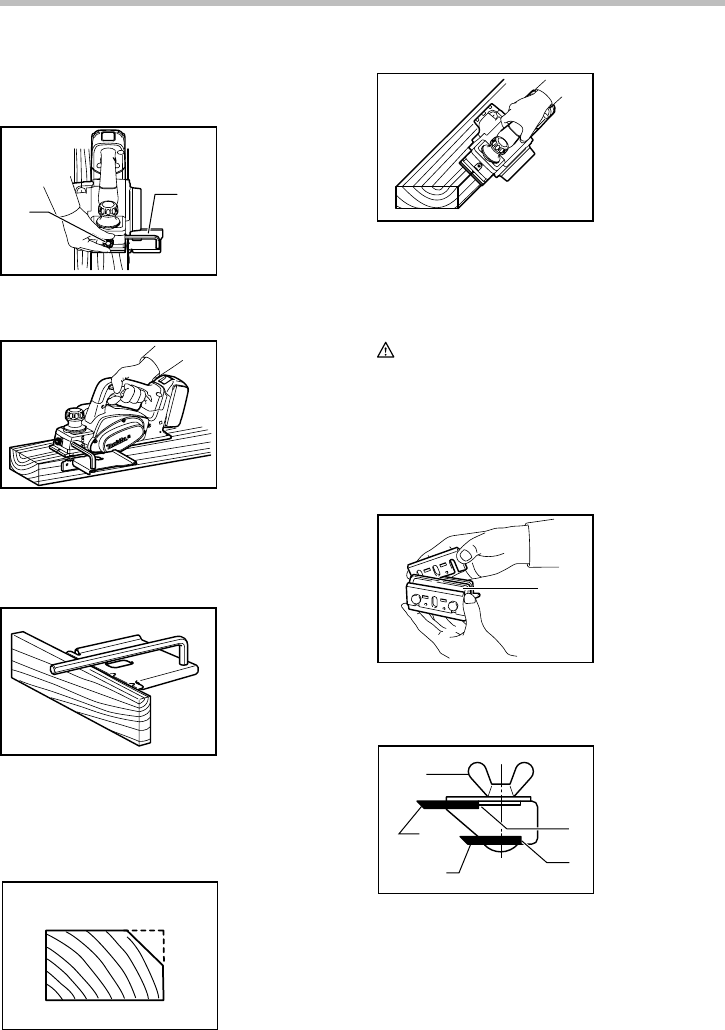
10
Draw a cutting line on the workpiece. Insert the edge
fence into the hole in the front of the tool. Align the blade
edge with the cutting line.
1
2
011760
Adjust the edge fence until it comes in contact with the side
of the workpiece, then secure it by tightening the screw.
011761
When planing, move the tool with the edge fence flush
with the side of the workpiece. Otherwise uneven
planing may result.
Maximum shiplapping (rabbeting) depth is 9 mm
(11/32").
010183
You may wish to add to the length of the fence by
attaching an extra piece of wood. Convenient holes are
provided in the fence for this purpose, and also for
attaching an extension guide (optional accessory).
Chamfering
003634
011748
To make a chamfering cut as shown in the figure, align
the "V" groove in the front base with the edge of the
workpiece and plane it.
MAINTENANCE
CAUTION:
• Always be sure that the tool is switched off and the
battery cartridge is removed before attempting to
perform inspection or maintenance.
•
Never use gasoline, benzine, thinner, alcohol or the
like. Discoloration, deformation or cracks may result.
Sharpening the conventional planer blades
(optional accessory)
1
002588
Always keep your blades sharp for the best performance
possible. Use the sharpening holder (optional
accessory) to remove nicks and produce a fine edge.
1
2
3
4
5
002589
First, loosen the two wing nuts on the holder and insert
the blades (A) and (B), so that they contact the sides (C)
and (D). Then tighten the wing nuts.
Immerse the dressing stone in water for 2 or 3 minutes
before sharpening. Hold the holder so that the blades
both contact the dressing stone for simultaneous
sharpening at the same angle.
1. Wing nut
2. Blade (A)
3. Blade (B)
4. Side (D)
5. Side (C)
1. Sharpening
holder
1. Screw
2. Edge fence
(optional
accessory)


















